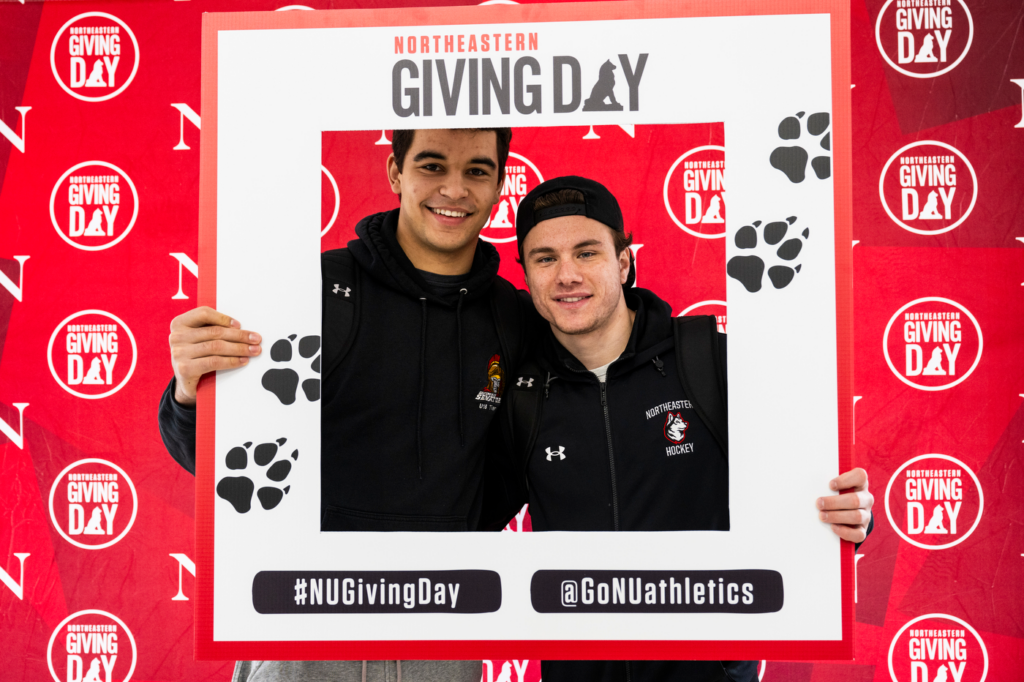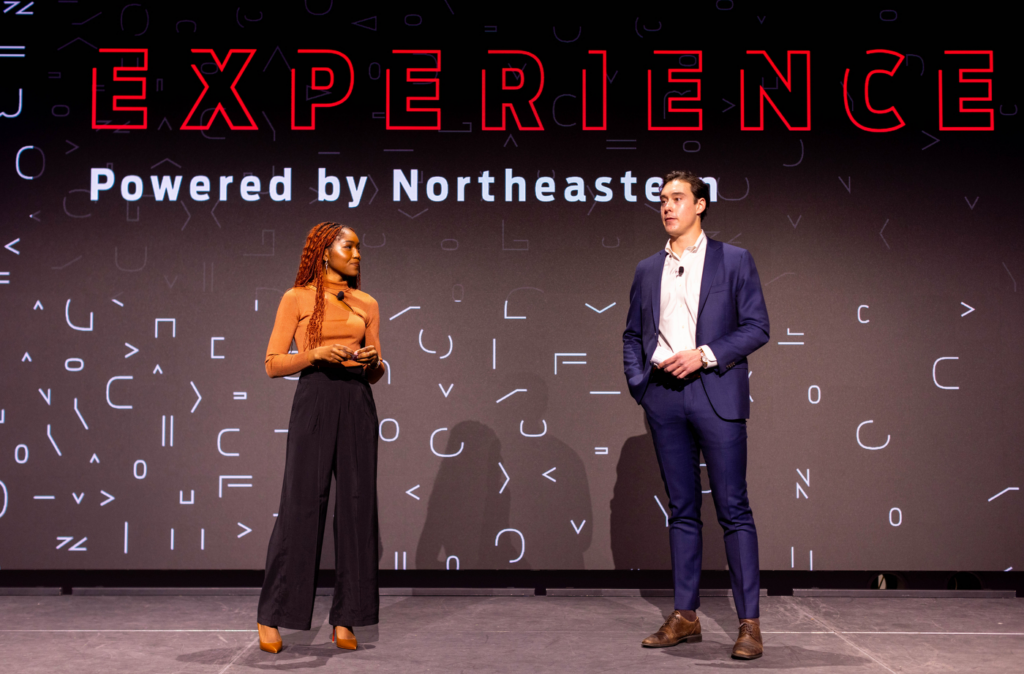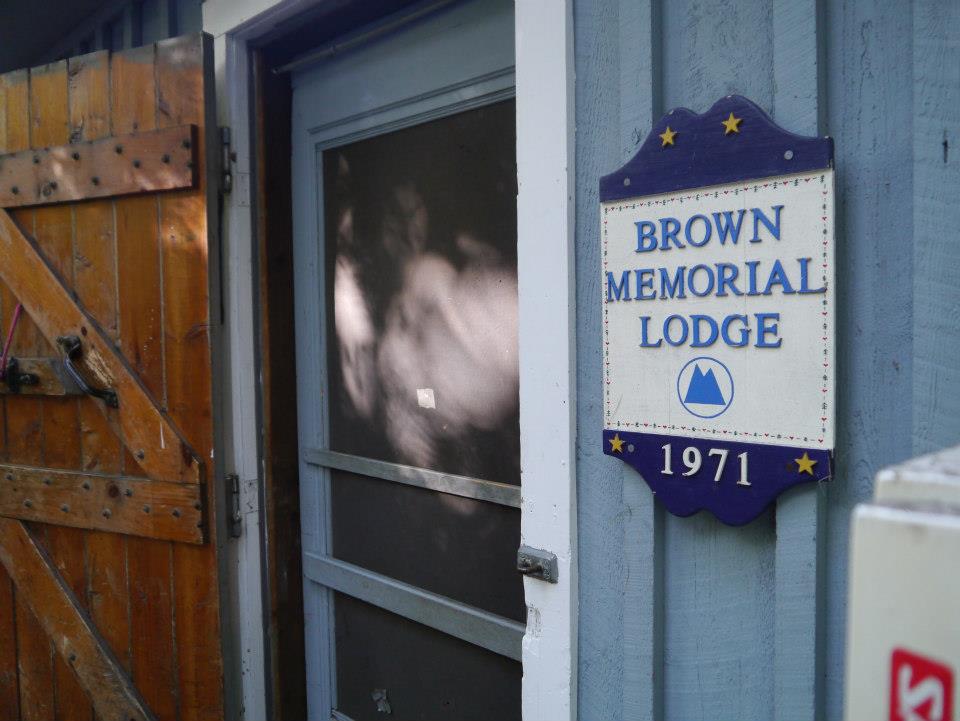This MLK Scholar Plans to Deliver Holistic Care to Vulnerable Communities






Susana Kalish’s interest in medicine was sparked at age eight, when her father faced a health scare. Since that day, Kalish, now a scholar in Northeastern University’s Dr. Martin Luther King Jr. Graduate Fellowship Program, is on track to become a physician assistant who delivers holistic primary care to underrepresented communities.
Kalish is one of six recipients of the annual MLK Fellowship, which is administered by Northeastern’s John D. O’Bryant African American Institute.
“I remember as a young girl thinking to myself, ‘I wouldn’t be here if it weren’t for [Martin Luther King Jr.],’” Kalish says. “Having a Black father and a white mother, I wouldn’t be here without the ancestors before me that fought for freedom and fought for equality.”
Today, Kalish is creating her own legacy, studying to become a physician assistant focused on providing holistic primary care to underrepresented communities. She is a first-year student in the Master of Science in Physician Assistant/Master of Public Health program.
“I really believe that mental health and physical health—as well as the social determinants of health—are intertwined,” Kalish says. “I’ve always wanted to investigate those so that hopefully in my future I can treat my patients holistically.”
“When I first received this scholarship, I called my parents and we celebrated with tears because of the financial burden that this scholarship is relieving for me,” Kalish says. “I feel so honored and blessed to have been awarded this scholarship and hope to show my gratitude through service to honor Martin Luther King Jr. and the John D. O’Bryant African American Institute at Northeastern.”
Kalish has known from a young age that she wanted to pursue a career in health care.
When she was 8 years old, her father—whom she described as a “super healthy” man—had a heart attack while running at 35 years old. Kalish believes that the stress from her parents’ then-recent divorce as well as genetics played a role.
“That kind of sparked my interest in medicine as well as the correlation between mental health and physical health,” Kalish says.
Processing the trauma of her father’s health scare and recovery through therapy, as well as helping care for a sister with mental health struggles, deepened Kalish’s interest in the connections between mental and physical health.
And after a physician assistant visited her high school career center, Kalish had found her calling.
“The kind of patient-centered care that she practiced was very inspiring to me, and I feel that I can make the biggest difference in future patients’ lives as a physician assistant,” Kalish says. “That’s especially what encouraged me to get the dual degree in public health and physician assistant—to kind of merge those interests and have that goal of treating patients holistically.”
Kalish says her diverse upbringing prepares her well for the career.
Kalish grew up in Los Angeles. Her father is Black and white and also Jewish. Her mother is white and Mexican and was raised Catholic.
“It really taught me to appreciate differences,” Kalish says. “I think I have a unique perspective in that I am made up of a lot of different races, ethnicities, cultures and religions.”
Kalish said this background—as well as extensive studies in Spanish from high school through college—also allows her to connect with the Latino and African American communities, two of the most vulnerable populations in the United States and communities that often mistrust health care.
“By working with African American and Latino communities in their environments, I want to help create safety and build trust in the healthcare system by demonstrating my understanding of their cultural needs,” Kalish says in an essay for the MLK Scholarship.
These communities are also disproportionately affected by social determinants of health, Kalish notes.
“That’s really looking at not just what are the physical symptoms the patient is experiencing, but what is going on in their life; what is going on at home, at work, at school; what kind of resources do they have; are they able to do things like grocery shop for fresh food; or do they live in a safe neighborhood where they are able to walk outside and exercise, do they have mental health concerns; and do they have resources and access,” Kalish explains. “I think these are all huge pieces of care that aren’t always looked at in the bigger picture.”
“I think a lot of my peers in my generation share the awareness and understanding that patients should be treated more holistically,” Kalish continues.
But I don’t think it was taught in the past historically—and I know that I’ve witnessed firsthand how my relatives and other patients have not received holistic health care, which motivates me to want to provide that to my patients.”
Kalish is also motivated to spread the message of representation in health care to her peers—serving as a mentor and helping several other minority students get accepted into physician assistant programs or medical school by helping with application and interview preparation or essay help. Kalish is also involved in the National Society of Black Physician Assistants.
“I really am passionate about getting minorities accepted into the health professions,” Kalish says. “There have been many people who have helped me along the way in the pursuit of my career as a physician assistant, including my family, my ancestors and my mentors. I hope to continue that forward in helping other minority students like myself as well as future patients.”
The MLK scholarship will help Kalish in this goal.
“This scholarship has the ability to increase representation in health care because it allows African American students like myself to obtain a higher education and then give back to our communities,” Kalish says.
“I really believe that mental health and physical health—as well as the social determinants of health—are intertwined.”
—Susana Kalish
This article was originally written by Cyrus Moulton
and published by Northeastern Global News.


